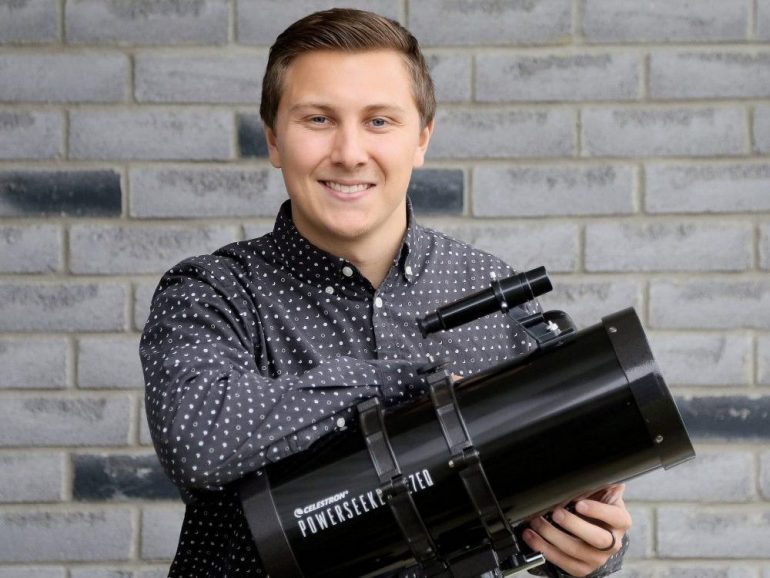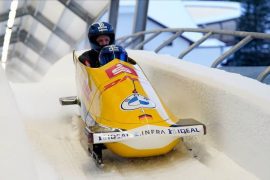A Western University astronomy student from Chatham, who’s been stargazing since he was a kid, has discovered an asteroid through remote access to a telescope in Spain.
Graduate student Cole Gregg, 22, was using a telescope based at an observatory known as Astrocamp to troll the night sky when he spotted the small, fast-moving, flashing object.
His find — an asteroid estimated to be about 50 to 100 metres long — came after months of seeing nothing notable during his studies. It was, to put it mildly, “unexpected,” Gregg said Wednesday.
“It was quite shocking. You are not really ready for it,” he said. “It takes you by surprise and it was very exciting.”
Using the telescope located on a Spanish mountaintop, Gregg said he observed the asteroid as it sped close to Earth, moving through near-space across Europe.
Gregg’s astronomy professor, Paul Wiegert, called it “a rare treat to be the first person to spot one of these visitors to our planet’s neighbourhood.”
Added Wiegert: “Astronomers around the globe are continuously monitoring near-Earth space for asteroids so this is certainly a feather in Cole’s cap.”
Western astronomy student Cole Gregg monitors the night skies. Gregg discovered the asteroid ALA2xH a week ago.
Gregg spotted the asteroid, given the temporary designation ALA2xH, on Nov. 18. Data collected about the asteroid was sent to the Minor Planet Center in Cambridge, Mass., to determine whether the observation was unique or not.
From there, it goes on their near-Earth object confirmation page.
Gregg used a website called Itelescope, which allows the public to access telescopes via the internet.
“A lot of people use them for the pretty astrophotography pictures, but they are quite capable of science as well,” Gregg said. “My project is proving that these small telescopes are quite capable of science.”
Despite their efforts, Gregg said they have not spotted the asteroid again “due to weather and unavailability of the telescopes.”
Gregg said he has been fascinated with space since he was camping as a boy and relished looking up at stars in the dark skies. “It sparked my interest.”
After completing his PhD in astronomy, he hopes to continue his research and teach.
“I’m interested in asteroids and comets and how they move, how they exist in the solar system and where they come from,” he said. “And how we can learn from our own solar system to understand . . . other solar systems in the galaxy.”

Devoted web advocate. Bacon scholar. Internet lover. Passionate twitteraholic. Unable to type with boxing gloves on. Lifelong beer fanatic.





